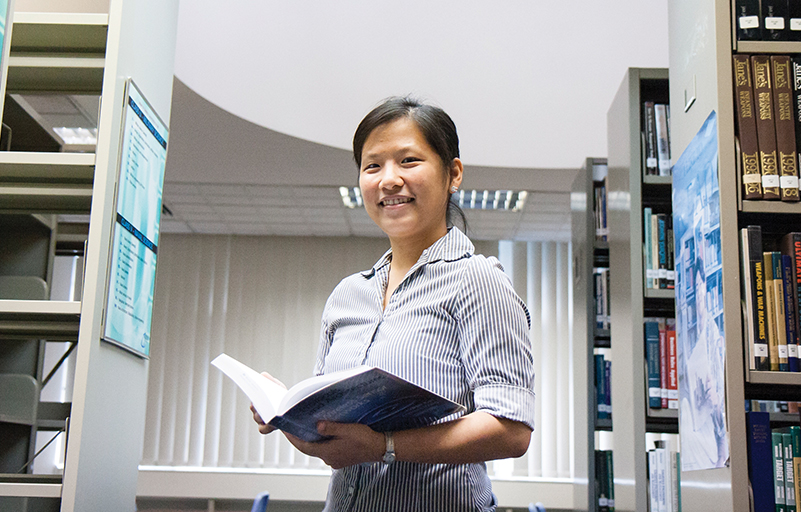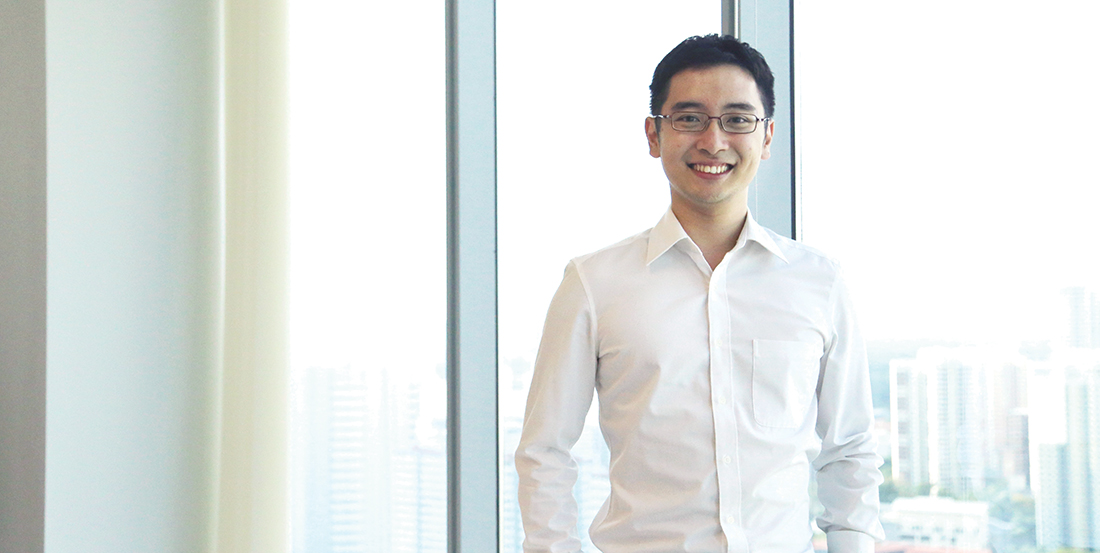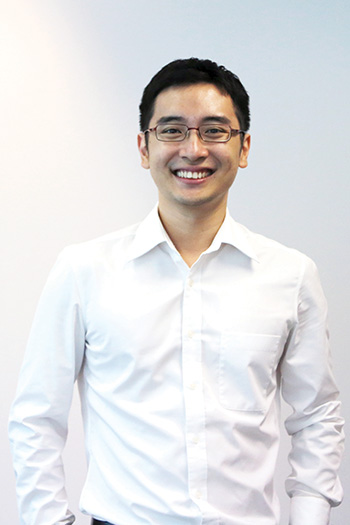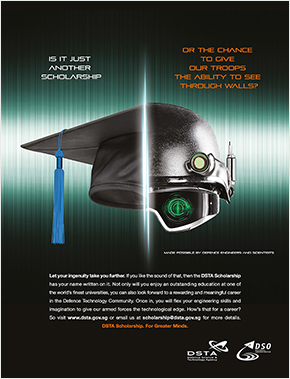The DSTA Scholarship
is offered to all-rounded,
passionate individuals
who desire to contribute
and make a difference in
Singapore’s technologically-advanced
defence force.
In August 1965, Singapore became a newly
independent nation and a resilient national
security system was a key priority for a
country of her small size. Back then, being
equipped with merely two infantry battalions
of 50 officers, about 1,000 men and two ships
proved the urgent need to build up Singapore’s
own defence capabilities.
Fifty years on, the Singapore Armed Forces
(SAF) has grown tremendously. Its growth and
advanced capabilities are largely due to the
planning, work and commitment of the Defence
Technology Community (DTC) – a key pillar
of Singapore’s peace and security. The DTC is
made up of various organisations which include
the Defence Science and Technology Agency
(DSTA) and DSO National Laboratories (DSO),
Singapore’s only defence R&D organisation.
These organisations work hand-in-hand to
ensure that the SAF remains a formidable
fighting force.
DSTA Scholars Lew Ee Kent and Lim Yi Jun
have been contributing to the nation’s defence
efforts for two years and four years respectively.
They tell us about their DSTA scholarship
journey, and how they help to create the critical
edge in Singapore’s defence technology.
What Sparked Your Interest In This
Field And In The DSTA Scholarship?
Lew Ee Kent: I have always been fascinated
by science and technology since young. One
technology that left a lasting impression was
the terrain matching navigation in cruise
missiles, enabling long distance travel without
getting lost. My interest grew over time and
influenced my education choices. It also led
to my decision in pursuing a career at the
forefront of defence technology. This is why
I was drawn to the DSTA Scholarship – I saw
it as an opportunity to contribute towards
strengthening Singapore’s defence capabilities
and enhancing our security, while fulfilling a
dream.

Lim Yi Jun
DSTA Undergraduate Scholar
Designation:
Member of Technical Staff,
Electronic Systems Division,
DSO National Laboratories
Studied:
Master of Engineering
(Electrical & Electronic Engineering),
Imperial College London, UK
"Through my mid-course DSO
internship, I discovered my interest in R&D-related
work as well as identified an area in
which I wanted to specialise, which is Signal
Processing."
Lim Yi Jun: My desire to pursue a career
in the field of defence technology only came
when I chanced upon the DSTA Scholarship
prospectus in Junior College. I was amazed
by the DTC’s significant contributions to both
our military and civil defence (e.g. the Infrared
Screening system during the SARS period). I
eventually decided that pursuing a career in this
sector will turn my interest into a meaningful
contribution to Singapore’s national security
too.
Tell us about your key roles and responsibilities.
Ee Kent: I am currently an engineer in the
Networked Systems Programme Centre
and involved in developing and integrating
knowledge-based command and control capabilities for Singapore’s air defence.
Command and control activities are similar to
functions performed by the central nervous
systems, and involve receiving inputs, analysing
information, and coordinating follow-up
actions. My work involves integrating these
command and control systems to ensure
they work effectively and enable the SAF to
exploit unique technologies. I also tinker with
new technologies, explore novel concepts of
operations, and continually imagine ways to
push and build new capabilities to enhance our
defence and security.
Yi Jun: I am an Electronic Systems Research
Engineer in DSO, where I develop Electronic
Warfare (EW) solutions. The purpose of the EW
is to protect our assets from the adversary’s
use of the electromagnetic (EM) spectrum, and
to ensure safe and efficient operations with the
EM spectrum regardless of disturbances by the
enemy.
In developing these solutions, I typically
handle several tasks that range from studying
concepts that can be utilised in the EW solution
design, to conducting tests in a laboratory
environment and on field trials to validate the
performance of these solutions.
Lew Ee Kent
DSTA Undergraduate Scholar
Designation:
Engineer, Networked Systems
Programme Centre, DSTA
Studied:
Master of Science
(Management Science and Engineering),
Stanford University, US
Bachelor of Science
(Electrical and Computer Engineering),
Carnegie Mellon University, US
"This is why
I was drawn to the DSTA Scholarship – I saw
it as an opportunity to contribute towards
strengthening Singapore’s defence capabilities
and enhancing our security, while fulfilling a
dream."
Share with us some opportunities
you have enjoyed on your
scholarship journey overseas.
Ee Kent: The DSTA Scholarship enabled me to
gain broad-based technical and non-technical
exposure. My technical exposure began during
my undergraduate years at Carnegie Mellon
University where I participated in engineering
research projects such as remote electromagnetic
sensing through fluctuations in
gravitational fields.
Besides the sciences, I gained non-technical
exposure through my research
projects on counter-terrorism and security that
provided insights into the political and policy
considerations in the area of national security.
Pursuing a Master’s degree in Management
Science and Engineering at Stanford University
also allowed me opportunities to do project
work with companies and leaders in Silicon
Valley.
Yi Jun: The tie-ups between Imperial
College and technology industries for industrial
attachments and projects provided me with
greater insights into the field through hands-on
experiences. I was once privileged to work
in a team under the guidance of Imagination
Technologies, a UK-based semiconductor R&D
company, to design and implement an image-processing
algorithm for object recognition
purposes. I must say that it was a very enriching
experience!
How has your scholarship journey
developed you for your career?
Ee Kent: The scholarship has enabled me
to learn and develop with breadth and depth.
Besides technical knowledge and engineering
skills, the scholarship has provided me with
valuable exposure and insights acquired from
diverse students, faculty, start-up community
and world leaders. These have contributed in
building my perspectives and outlook for my
career.
My internship experience with DSTA was
rewarding and fruitful. It helped me gain a
deeper understanding of the work we do, and
provided opportunities for me to get to know
more colleagues in DSTA. My first internship
was at the Risk Assessment and Horizon
Scanning Experimentation Centre managed
by DSTA. I learned how analytics, modelling
and perspective sharing tools are employed
to anticipate emerging security risks and
identify patterns from large amounts of data.
My second internship after my sophomore year was spent with DSTA’s Modelling and
Simulation department. There, I learned about
the SAF’s training needs and worked with
aircraft simulators that pilots use to train for
their missions.
Yi Jun: Through my mid-course DSO
internship, I discovered my interest in R&D-related
work as well as identified an area in
which I wanted to specialise, which is Signal
Processing.
I was able to work on Estimation Theory,
applications which include target tracking
and navigation. My internship project also
challenged me to be resourceful, think
analytically and learn on-the-job. These are
essential skills required in the R&D work I
conduct today as our work involves breaking
new ground and charting unknown territory.
What advice do you have for
aspiring DSTA Scholars?
Ee Kent: Do attend the DSTA scholarship tea
session, and catch us at the various school
fairs. You will get to talk to DSTA engineers and
DSO researchers, and may even get to learn
about some of the projects we do. It will help
you to find out more about the work we do in
our diverse portfolio and whether it fits your
personal aspirations.
Yi Jun: Do take the initiative to participate in
the Young Defence Scientists Programme and
post-‘A’ Level internship programmes from DSO
to get a foretaste of research work in defence
technology. Attending scholarship tea sessions
and visiting open houses will also help you gain
a better understanding of what we do and aid in
your decision-making process.



